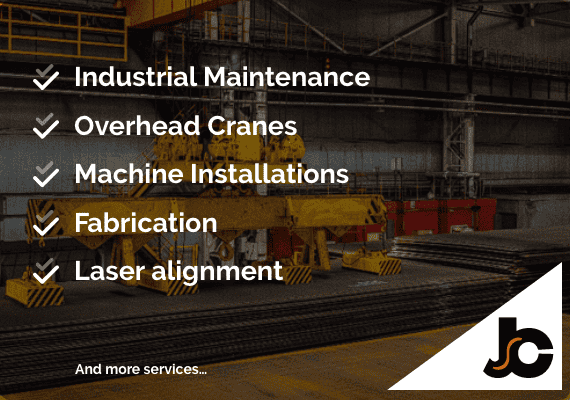For businesses of all sizes, finding ways to improve productivity, reduce costs, and streamline operations is always a top priority.
One effective strategy to achieve these goals is by hiring temporary staff. Temporary staffing provides businesses with on-demand access to qualified, skilled labour without the long-term commitment and overhead costs of hiring full-time employees.
In this article, we’ll look at some benefits of hiring temporary staff for your business and how to ensure you get the most from this approach.
Benefits of Hiring Temporary Staff
Regardless of the staffing situation, quality staffing solutions, more often than not, lead to solid outcomes. With all these advantages in mind, you’ll want to opt for temporary staffing in demanding, time-urgent situations when you need extra help but cannot undertake long-term resource investment.
Flexibility
Hiring temporary staff allows businesses to add and reduce the workforce according to their needs. It is especially helpful during peak production times, seasonal demands, and special projects.
Cost Savings
Temporary staffing allows businesses to avoid overhead costs related to retaining full-time employees, such as health insurance, paid vacation, or sick days. Temporary staff is typically compensated hourly, resulting in businesses only paying for their work hours.
Specialised Skills
Businesses can acquire highly specialised skills for specific projects, bringing in subject matter experts who can quickly ramp up and deliver efficient results.
Reduced Liability
Temporary staff reduces the liability of employers who are replaced or terminated before unjustifiable legal action. It is particularly significant for businesses with strict rules, safety regulations, and criteria related to job-site security.
Greater Productivity
Temporary staff can increase productivity without impacting existing staff’s workload. It ensures jobs are completed on time, freeing existing staff to focus on more critical tasks.
Ability to Evaluate Workers
Temporary staffing offers opportunities for immediate feedback and testing of new employees, allowing businesses to assess the talent before hiring them permanently. It helps avoid the costs of hiring unqualified or poorly-matching permanent employees.
The Cost Savings of Using Temporary Staff Compared to Hiring Permanent Employees
One of the most significant advantages of hiring temporary staff is cost flexibility.
Permanent employees come with significant investments, including salaries, benefits, and other overhead expenses.
In contrast, temporary staff can be a cost-effective option, especially if you only require additional help for a short period, such as during peak times or special projects. Hiring short-term workers will alleviate the risk of permanent staffing and provide your business with the flexibility to respond to changing market needs.
Another cost benefit of hiring temporary staff is that you won’t have to pay for any benefits packages such as health insurance, paid vacation, or sick days. It can add up to massive savings over time.
A shortage of work does not hurt your budget when working with temporary staffing. Moreover, temporary staff is only paid for the hours that they work. You can easily adjust their hours or number of staff depending on workload changes, which is not possible for permanent employees. This flexibility allows companies to spend less on staffing costs and use those savings elsewhere for the betterment of the business.
How to Effectively Onboard and Manage Temporary Staff
When it comes to temporary staffing, onboarding and management can be a challenge. Temporary staff needs to be trained like permanent employees so they can effectively work with your company’s team and customers.
Onboarding programs for temporary staff often require a streamlined process, with ideally one staff member as a careful point of contact in case of confusion or difficulties.
To ensure effective onboarding, temporary employees’ expectations should be set clearly at the beginning of their employment. Temporary staff should know the company’s goals, processes, and culture to maintain transparency and efficiency, as discussed in company policies and procedures. This would provide a clear understanding of their expectations within tight timeframes.
An orientation session that includes the company’s history and goals and practical details of its work on-site is essential. To ensure that the temporary staff know what to do, their job description should be in writing and kept in a location where they can access it when needed.
Moreover, in addition to training, temporary staff must be provided with the tools, equipment, and resources to complete their tasks successfully. The tools may include proper safety equipment, specialised equipment, or software.
Always perform on-the-job safety training and explain all hazardous materials and equipment, including emergency protocols, to ensure that temporary staff is adequately equipped to work alongside permanent employees.
Finally, setting clear expectations and ensuring open communication is maintained throughout their employment is critical to the performance of temporary staff. The management team should be readily available to help or guide the temporary staff if any information-related problems occur.
The Legal and Regulatory Considerations of Hiring Temporary Workers
Businesses will reduce their advertising and other hiring costs by using a legally and appropriately sanctioned temporary staffing provider while mitigating potential liability associated with direct hiring.
Another advantage of using temporary staff is relying on labour hire companies to handle many legal and regulatory considerations. These companies ensure that all necessary documentation, such as work permits and payroll taxes, is accurately completed for each temporary employee.
Additionally, these companies screen temporary employees, reducing employers’ compliance headaches and enhancing their workforce quality.
The Role of Labor Hire Companies in Sourcing and Vetting Temporary Staff
As mentioned, labour hire companies are essential to temporary staffing. These companies provide various services, including sourcing, screening, and vetting temporary staff.
By using an established and reputable labour hire company, businesses can be confident in the quality of the employees they recruit, often at.
Tips for Selecting the Right Labor Hire Company for Your Business’s Needs
When selecting a labour hire company to work with, there are a few key factors to consider. Here are some tips for selecting the best labour hire company for your business’s needs.
Evaluate Their Reputation
Check out the company’s reviews, testimonials, and feedback from previous clients. It’ll help you get an insight into their performance, customer service, and overall quality of work.
Experience and Expertise
Look for a labour hire company with sufficient industry experience and expertise. Their industry knowledge should reflect in the quality of workers provided to you, which will be presented in you receiving high-quality work.
Types of Temporary Staff They Provide
Investigate the labour hire company’s specialisation, the range of temporary staff they provide, and what areas they cover. Always ensure they have the type of staff you need available, with relevant qualifications and training to suit your business’s needs.
Selection and Screening Process
Learn about the labour hire company’s selection and screening process of temporary staff members. The company should have recruitment procedures to ensure they can guarantee the qualifications and skills of their workers.
Customer Support and Communication
Good communication is key to success in any business. Ensure that the labour hire company you select responds to your inquiries and concerns and keeps you informed throughout the process.
Hire from Reputable Labor Hire Companies for Quality and Success
In conclusion, hiring temporary staff for your Australian business can offer many benefits, including cost savings, flexibility, access to top talent and reduced liability.
By choosing the right labour hire company, businesses can enjoy these benefits to the fullest extent.
That’s why Jones Complete Services (JCS), a leading and reputable contracting company based in Illawarra, is committed to providing the best possible services to its clients, whether they need help with underground and surface mining, heavy steel manufacturing, conveyors and overhead cranes, maintenance, installations, breakdowns, servicing, and much more.
With their highly experienced, highly motivated, licensed electrical and mechanical trades, JCS offers quality work, is committed to their clients and employees, and has a professional approach to all projects.
By hiring from reputable labour hire companies, businesses can ensure that they, too, receive the same level of commitment and high-quality work they need to succeed.
To hire temporary staff, get in touch with Jones Complete Services today.
Frequently Asked Questions
What Is the Best Way to Hire Temporary Workers?
There are a few different ways to hire temporary employees for your business. One option is to use a recruitment agency that specialises in temporary staffing, as they can handle the entire hiring process for you. Alternatively, you can post job listings on job boards or social media platforms specifically for temporary positions. Once you have candidates, thoroughly vet them and ensure they fit the job title and duties well.
What Is the Difference Between a Casual Worker and a Temporary Worker?
A temporary employee is hired for a specific duration, such as a few weeks or months. On the other hand, a casual worker is typically hired on an as-needed basis and does not have a set duration of employment. Temporary workers typically have set hours and duties, whereas casual workers can have more varied schedules and duties.
What Is the Difference Between Temp to Hire and Temporary?
Temp to hire refers to a situation in which a company hires a temporary candidate with the potential to become a permanent employee. A traditional temporary worker is hired only for a set duration of time and does not have the possibility of becoming a permanent employee. After the contracted temporary period ends, the employer and employee can renew or terminate the contract early.
What Do Temporary Employees Include?
A temporary employee is someone hired by a company for a set period to fill a specific role or complete a specific project. This can include anything from administrative assistants to software engineers. Temporary employees are usually paid by the hour and do not receive the same benefits as permanent employees, such as health insurance or paid time off. Additionally, employers do not have to pay payroll tax on temporary staff.















